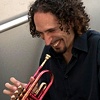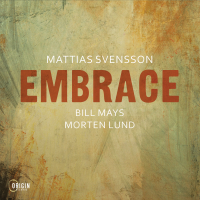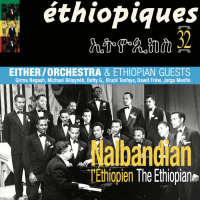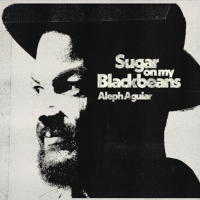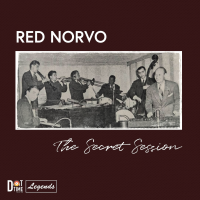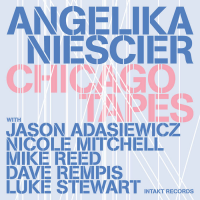Home » Jazz Articles » Multiple Reviews » Albert We Hardly Knew Ye
Albert We Hardly Knew Ye
The description of the flame is also apropos, as Ayler was quoted as saying, "Trane was the Father, Pharoah was the Son, I am the Holy Ghost." As the Holy Ghost is often depicted in Christian iconography as an anointing fire, Ayler's music had the same effect as a blessing or consecration. Well, at least to his devotees, Frank Wright and Pharoah Sanders in the Sixties, and Mats Gustafsson, Charles Gayle, Jeff Lederer, John Dikeman, and Mars Williams today.
After his historic studio recording Spiritual Unity (ESP, 1964) with bassist Gary Peacock and drummer Sunny Murray, these two discs below document the live experience of the Ayler message. The credo, as he preached it in 1964 and 65.
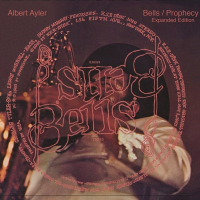 Albert Ayler
Albert Ayler Bells & Prophecy: Expanded Edition
ESP
2016
This 2 CD expanded edition of Bells/Prophecy combines his May 1, 1965, Town Hall concert with a live date from the Cellar Café recorded one month before he made Spiritual Unity in 1964. The single track "Bells" from Town Hall was initially released as a one-sided clear plastic LP by ESP label chief Bernie Stollman, and has been a coveted collector's item for decades.
If we work through this music in chronological order, the Cellar Café sessions, the bulk of these two discs should be listened to first. Poet Paul Haines recorded this music on June 14, 1964, and it was originally issued in 1975, presenting five tracks. The remaining six came out in the massive 10-CD Holy Ghost (Revenant, 2004) box set.
The Cellar sessions find Ayler with his Spiritual Unity trio of bassist Gary Peacock and drummer Sunny Murray. With what we suspect was not professional recording equipment, the sound is surprisingly clear, disc one much more so than disc two. Customers can be heard chatting before "Ghosts" begins, but are soon inundated by Ayler's stentorian saxophone. Behind the saxophonist, both Peacock and Murray's ideas of timekeeping were revolutionary. Both opted for bursts of energy, Peacock's bass singing and Murray's drums making small whirlpools of sound.
Ayler's gospel was simple, yet anarchic to many ears. He preferred anthems and marches as the ingredients for his free jazz. Like Ornette Coleman's music of the time, a child could grasp the less-is-more concepts of freedom. The eerie wordless moaning heard behind the playing only adds to its mystery.
The twenty-minute Town Hall "Bells" made nearly one year after the cellar recording, adds trumpeter Donald Ayler, saxophonist Charles Tyler, and replaces Peacock with bassist Lewis Worrell. The music has more urgency, and adheres less to song form and leans more towards free jazz, yet moving through a medley of Ayler music. By now, he had followers to his theories, and there is a familiarity to the sounds produced.
 Albert Ayler Quartet
Albert Ayler Quartet European Radio Studio Recordings 1964
Hatology
2016
In the immediate aftermath of Albert Ayler's 1964 Spiritual Unity (ESP) recording, he embarked on a brief European tour with his trio of bassist Gary Peacock, drummer Sunny Murray, plus the addition of Don Cherry on cornet. Of course, on his return to the States, it would be brother Don Ayler instead of Cherry playing trumpet. These European Radio Studio Recordings 1964 collect the music from two sessions that were originally released as The Hilversum Recordings (Osmosis, 1965) and The Copenhagen Tapes (Ayler Records, 2002). The music was properly recorded by skilled engineers, and more importantly remastered to Hatology's high standards, here by Peter Pfister.
The music is precious and scarce Ayler. His tenor opens the disc with "Angels" with his thunderous vibrato attack and Murray's bounce-to-exhaustion beat. The piece unwraps itself with the penetrating cornet of Cherry and Peacock's pursuing bass. It must have been quite the surprise for European audiences to hear this quartet, because few would have heard Spiritual Unity (1964) before witnessing this music. Don Cherry's presence might have given a clue to audiences familiar with his association with Ornette Coleman and the Atlantic recordings The Shape Of Jazz To Come (1959) and This Is Our Music (1960).
The quartet takes "Ghosts" at a much swifter pace than previous recordings. It's not that Ayler rushes the piece, but he pushes Cherry ever outward. During Peacock's urgent solo, we hear the moaning (my bet it's Murray) that adds to the chilly nature of the piece. "Ghosts" ends with a speedy run through, almost like Miles Davis would play "The Theme" before a set break.
The three versions of "Spirits" are anything but repetitive. Ayler has a way of opening up a composition so it never sounds the same way twice. That's the freedom gospel he preached from his bully pulpit.
Tracks and Personnel
Bells & Prophecy: Expanded Edition
Tracks: (CD1) Bells; Spirits; Wizard; Ghosts, First Variation; Prophecy; Ghosts, Second Variation; (CD2) Spirits; Saints; Ghosts; The Wizard; Children; Spirits (theme).
Personnel: Albert Ayler: tenor saxophone; Donald Ayler: trumpet; Charles Tyler: alto saxophone; Lewis Worrell: bass; Gary Peacock: bass; Sunny Murray: drums, percussion.
European Radio Studio Recordings 1964
Tracks: Angels; C.A.C; Ghosts; Infant Happiness; Spirits; No Name; Vibrations; Saints; Spirits.
Personnel: Albert Ayler: tenor saxophone ; Don Cherry: cornet; Gary Peacock: double bass Sunny Murray: drums.
Tags
Albert Ayler
Multiple Reviews
Mark Corroto
United States
Ohio
Cleveland
Pharoah Sanders
Mats Gustafsson
Charles Gayle
Jeff Lederer
John Dikeman
Mars Williams
Gary Peacock
Sunny Murray
Ornette Coleman
Don Cherry
Miles Davis
PREVIOUS / NEXT
Support All About Jazz
 All About Jazz has been a pillar of jazz since 1995, championing it as an art form and, more importantly, supporting the musicians who make it. Our enduring commitment has made "AAJ" one of the most culturally important websites of its kind, read by hundreds of thousands of fans, musicians and industry figures every month.
All About Jazz has been a pillar of jazz since 1995, championing it as an art form and, more importantly, supporting the musicians who make it. Our enduring commitment has made "AAJ" one of the most culturally important websites of its kind, read by hundreds of thousands of fans, musicians and industry figures every month.



